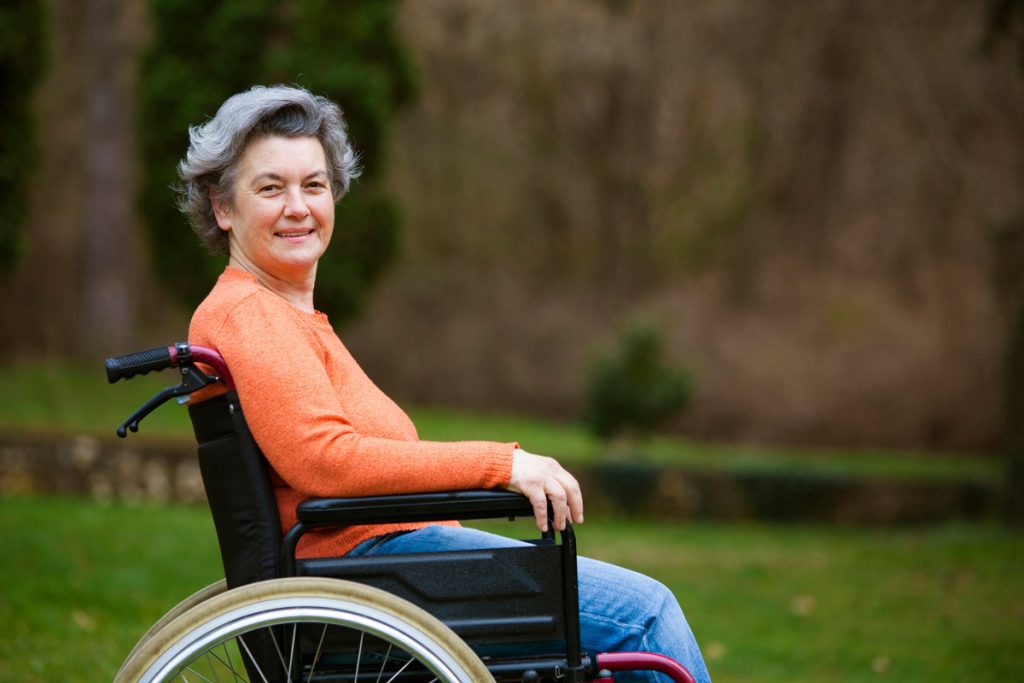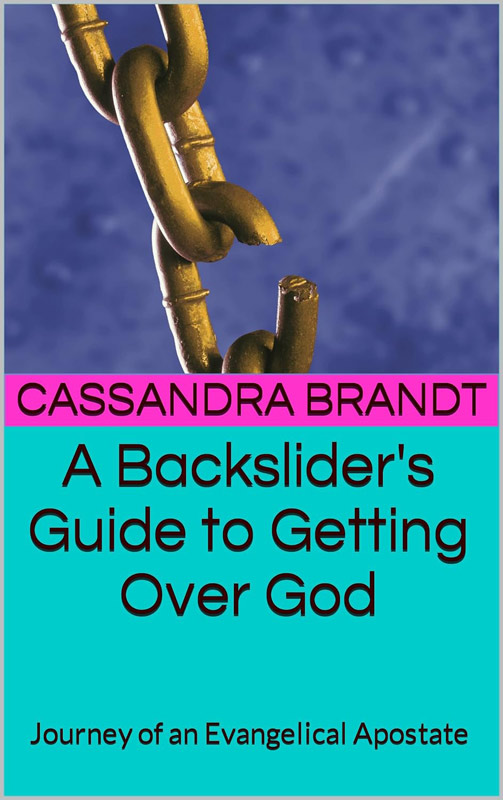Living with a disability or chronic illness is more than challenging on the body—it’s challenging on the mind. With poor health and disability come stress and worry. Healthcare can be expensive, and much of society can be inaccessible. Worries can lead to anxiety and depression.
According to the CDC adults with disabilities report experiencing frequent mental distress almost 5 times as often as adults without disabilities. Emotional distress exacerbates physical distress, too, even directly causing symptoms.
So, how do you achieve the mental strength needed to face the challenges of physical disability and illness?
The media inundates us with information on how to do just that. In the United States, publishers release around 15,000 self-help books each year, a number that’s only growing. Self-help podcasts have also gained popularity in recent years, and millions of Americans see a mental health professional.
Many of these help alternatives employ some form of cognitive behavioral therapy (CBT), an evidence-based intervention that can be leveraged to reduce distress and promote well-being.
Changing the way we think can be a process. While CBT is talk therapy, identifying the troubling situations or conditions in your life is just the beginning. CBT helps you become aware of your thoughts, emotions, and beliefs about these problems and yourself and learn to identify harmful or inaccurate thinking and reshape it.
Studies have shown that CBT can be effective in treating people with disabilities. A close look at the intersection between mental health and physical disability shows how beneficial cognitive behavioral therapy can be for this group, especially if the mental health professionals consulted are knowledgeable about disability.
Cognitive behavioral therapy teaches techniques such as relaxation, coping, resilience, stress management, and assertiveness. A CBT therapist may be interested in increasing clients’ access and willingness to engage in rewarding activities, educating them in various forms of relaxation training and problem-solving strategies, and encouraging them to re-evaluate distorted cognitions that cause anxiety and depression.
A study of the effect of CBT for people with spinal cord injuries (SCI) found that “CBT holds promise as an effective approach for persons with SCI experiencing depression, anxiety, adjustment, and coping symptoms.”
Spinal cord injury delivers a shocking, life-altering blow. While physical rehabilitation is often prioritized, mental rehabilitation is essential too. The SCI study found that CBT “has many advantages in a rehabilitation program: it is structured; time-limited involves goal setting, engages clients, and is skills-based.”
The following tools of CBT can be highly effective for people with disabilities.
- Cognitive restructuring: Identifying negative thought patterns and reframing them in a more rational way
- Mindfulness: Focusing on the present moment and disengaging from negative thoughts
- Cognitive diffusion: Recognizing thoughts as just thoughts and choosing whether or not to engage with them
- Problem-solving: Identifying problems and brainstorming solutions
- Relaxation training: Learning to relax the body’s stress response
- Goal setting: Creating clear and achievable objectives
- Assertiveness training: Expressing feelings and needs confidently/respectfully
- Successive approximation: Breaking large tasks into smaller, more manageable steps
- Diaphragmatic breathing: A coping skill that involves inhaling by contracting the diaphragm and expanding the abdomen
A subjective experience with CBT post-SCI
When I was diagnosed with a complete cervical spinal cord injury, I struggled mentally. My perspective was overly negative, and I assumed the worst about myself and others.
My first exposure to psychotherapy didn’t come in the form of modern CBT at all. I didn’t see a therapist or listen to any podcasts, and the only reading I did was philosophy. But it was in that philosophy that I learned cognitive behavioral therapy.
I embraced the philosophy of the Greco-Roman Stoics. It convinced me of my inner strength and challenged me to draw on it. When my brother cracked open Marcus Aurelius: Meditations and convinced me to dig deep inside myself for strength, I found it certainly was present there.
I understood that focusing on what was in my control was the most important thing. Dwelling on the negative and living in the past were counterproductive. Worrying about others was pointless. Complaint was unnecessary, gratitude essential, and mindfulness mandatory.
The Stoics not only emphasized finding inner strength and focusing on a positive perspective but living a virtuous life that is validating in ways that pleasure-seeking never could be. The philosophy highlights service to others, much like Christianity, which interestingly has some roots in Stoic thought.
The Stoic Epictetus had a lifelong disability, and he would just shrug and say it was an impediment to the body, not the will. The Stoics admired mental fortitude over physical strength. The Stoic Seneca said, “There is a place for heroism on a sickbed.”
Stoicism is still popular thousands of years later because it teaches the same basic principles as cognitive behavioral therapy. This philosophy helps to train the brain to become stronger, dwell in the light instead of the dark, derail ugly trains of thought, and throw energy into worthy work.
I think if a Roman emperor and a disabled 21st-century American woman can benefit from the philosophy, pretty much anyone else can, too.
My background in Stoicism prepared my mind for psychotherapy. When I began seeing a therapist several years post-injury, I was surprised at all the parallels between cognitive behavioral therapy and Stoic philosophy, and I was equally eager to keep working on myself.
I can’t say that I experience significant depression or anxiety anymore. I’ve trained my brain not to go to those places. This type of therapy works—even for an individual with a severe physical disability. The work isn’t easy, but it’s worth it, and the tools are everywhere if you look!
Talk to your healthcare provider about mental health options. You may also be afforded the opportunity for therapy services in a vocational rehabilitation program. You can also explore CBT help online or pick up a copy of my book about using the philosophy of the Stoics to deal with disability on Amazon.
About the Author: Cassandra Brandt is an Arizona-based author and sociologist. She works with people with disabilities and individuals deconstructing from religion. You can find her books on Amazon:
References
- Cree RA, Okoro CA, Zack MM, Carbone E (2020). Frequent Mental Distress Among Adults by Disability Status, Disability Type, and Selected Characteristics – United States 2018. Morbidity and Mortality Weekly Report (MMWR).
- How stress affects your health. American Psychological Association. https://www.apa.org/topics/stress/health
- Terlizzi EP, Schiller JS. Mental health treatment among adults aged 18–44: United States, 2019–2021. NCHS Data Brief, no 444. Hyattsville, MD: National Center for Health Statistics. 2022. DOI: https://dx.doi.org/10.15620/cdc:120293
- Mona, L. R., Hayward, H., & Cameron, R. P. (2019). Cognitive behavior therapy and people with disabilities. In G. Y. Iwamasa & P. A. Hays (Eds.), Culturally responsive cognitive behavior therapy: Practice and supervision (2nd ed., pp. 257–285). American Psychological Association. https://doi.org/10.1037/0000119-011
- Lockett, E. (2023) Benefits of Psychotherapy for People Living with Disability. Healthline. https://www.healthline.com/health/mental-health/disability-psychotherapy
- Mehta S, Orenczuk S, Hansen KT, Aubut JA, Hitzig SL, Legassic M, Teasell RW; Spinal Cord Injury Rehabilitation Evidence Research Team. An evidence-based review of the effectiveness of cognitive behavioral therapy for psychosocial issues post-spinal cord injury. Rehabil Psychol. 2011 Feb;56(1):15-25. doi: 10.1037/a0022743. PMID: 21401282; PMCID: PMC3206089.
- Pietrangelo, A. (2019). 9 CBT Techniques for Better Mental Health. Healthline. https://www.healthline.com/health/cbt-techniques
The opinions and views expressed in any guest blog post do not necessarily reflect those of www.rtor.org or its sponsor, Laurel House, Inc. The author and www.rtor.org have no affiliations with any products or services mentioned in the article or linked to therein. Guest Authors may have affiliations to products mentioned or linked to in their author bios.
Recommended for You
- How a Health Cleanse Can Reset Your Body and Mind - April 16, 2025
- The Truth about Relapse in Addiction Recovery - April 14, 2025
- The Power of Peer Support in Mental Health Recovery - April 10, 2025








